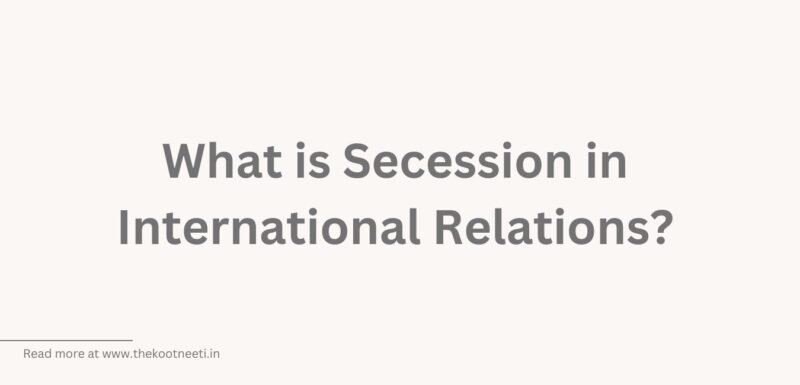What is Secession in International Relations?

Secession is the process of a region or territory breaking away from a larger state and establishing itself as an independent entity. Secession can be motivated by a variety of factors, including cultural, political, or economic differences, or a desire for greater autonomy or self-determination.
Secession is a controversial issue in international relations, as it can lead to conflicts and tensions between states and can challenge the principle of territorial integrity and the stability of the international system. Many states view secessionist movements within their borders as a threat to their unity and sovereignty, and may use military force or other measures to suppress such movements.
Secession is not recognized as a right under international law, and states have the right to defend their territorial integrity against separatist movements. However, in some cases, secessionist movements may be successful in achieving independence, either through negotiation or through the use of force.
The issue of secession is often a complex and contentious one, and it can be difficult to find a resolution that is satisfactory to all parties involved. Efforts to address secessionist conflicts often involve efforts to address the underlying grievances that have led to the desire for secession, as well as efforts to promote dialogue and cooperation.


















